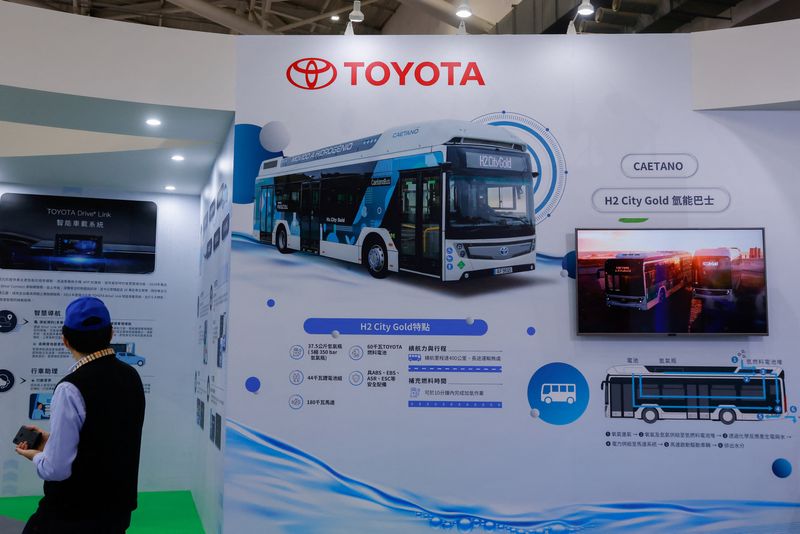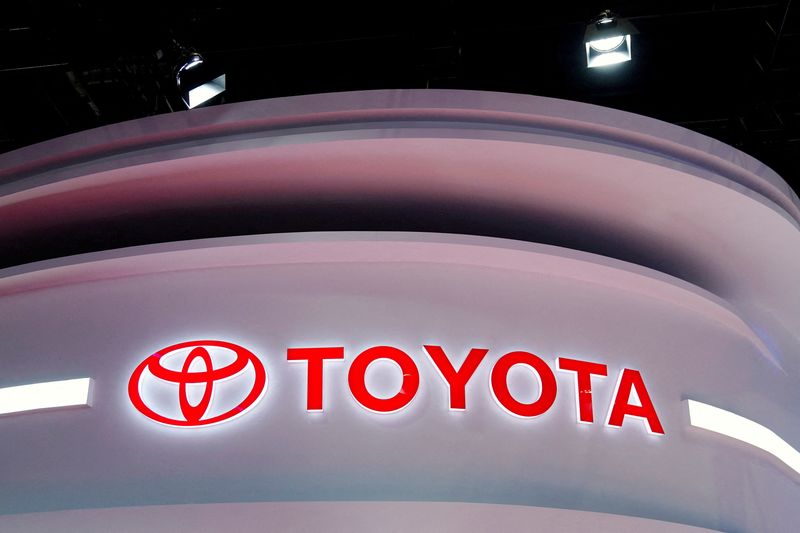TOKYO (Reuters) - Toyota Motor (NYSE:TM) has unveiled a range of technologies to improve the range, performance and cost of electric vehicles (EVs) that it plans to introduce in the second half of the decade.
The Japanese automaker, which has been criticised by some investors for being slow to roll out battery electric models, said it expects annual sales of 1.5 million EVs by 2026.
Toyota released a technology briefing, including details on new solid-state batteries, a day before its annual shareholder meeting where governance, climate lobbying and EV strategy are under scrutiny.
Here are Toyota's key announcements:
BATTERY TECHNOLOGY
Toyota has a number of initiatives to improve battery performance and reduce cost, and said it was ready to move from research toward production of solid-state batteries. Such batteries promise more energy density and shorter charging times than lithium-ion batteries now in use.
It aims to sell vehicles powered by solid-state batteries by 2027 or 2028.
Toyota said, without providing details, it had achieved a "technological breakthrough" overcoming problems previously identified with solid-state batteries' durability.
It also said it would have a more energy-dense battery available for an EV in 2026 that has a driving range of 1,000 km on a single charge, a charge time of 20 minutes or less, and cost reduction of 20% versus its current EV, the bZ4X.
In addition, Toyota said it would produce a range of lower-cost lithium-iron phosphate (LFP) batteries for use in 2026 or 2027. It said it was targeting a 20% increase in range and a 40% reduction in cost compared to the bZ4X.
PRODUCTION TECHNOLOGY
Toyota said it would use Giga casting, a production process pioneered by Tesla (NASDAQ:TSLA), to reduce the complexity and cost of manufacturing its next-generation EVs.
Giga presses reduce complex welded assemblies in car manufacturing with a single, massive aluminium die-casting machine to streamline production.
Toyota said more flexible assembly lines with self-propelled vehicles and digital technology could cut its factory investment cost for new vehicles by half and reduce other fixed costs, including labour.
AERODYNAMICS
Toyota said it was working with rocket designers at Mitsubishi Heavy Industries to improve the aerodynamics of EVs and to extend their range.
The lower the coefficient of drag - a measure of the wind resistance on the car - the more efficient a car is on the road.
Tesla's best-selling Model Y, for instance, has a coefficient of drag of about 0.23. The Lucid Air, a luxury performance EV from U.S. peer Lucid Motors that starts from $138,000 in the U.S., has a market-leading coefficient of 0.197.
Toyota said it could achieve a 0.1-level coefficient using Mitsubishi technology.
TECHNOLOGY FROM SUPPLIERS
Toyota said it would introduce smaller "eAxles" that combine electric motors and the components to propel an EV, from suppliers including Aisin and Denso.
It said those components would add range to EVs and increase cargo space in the rear of the car, where the drive unit sits.

Toyota also said it was developing silicon carbide wafers for semiconductors that would be used in next-generation EV inverters, technology also being developed by Denso.
Those chips promise to reduce power loss to the electric motor of an EV by up to 50%, Toyota said.
